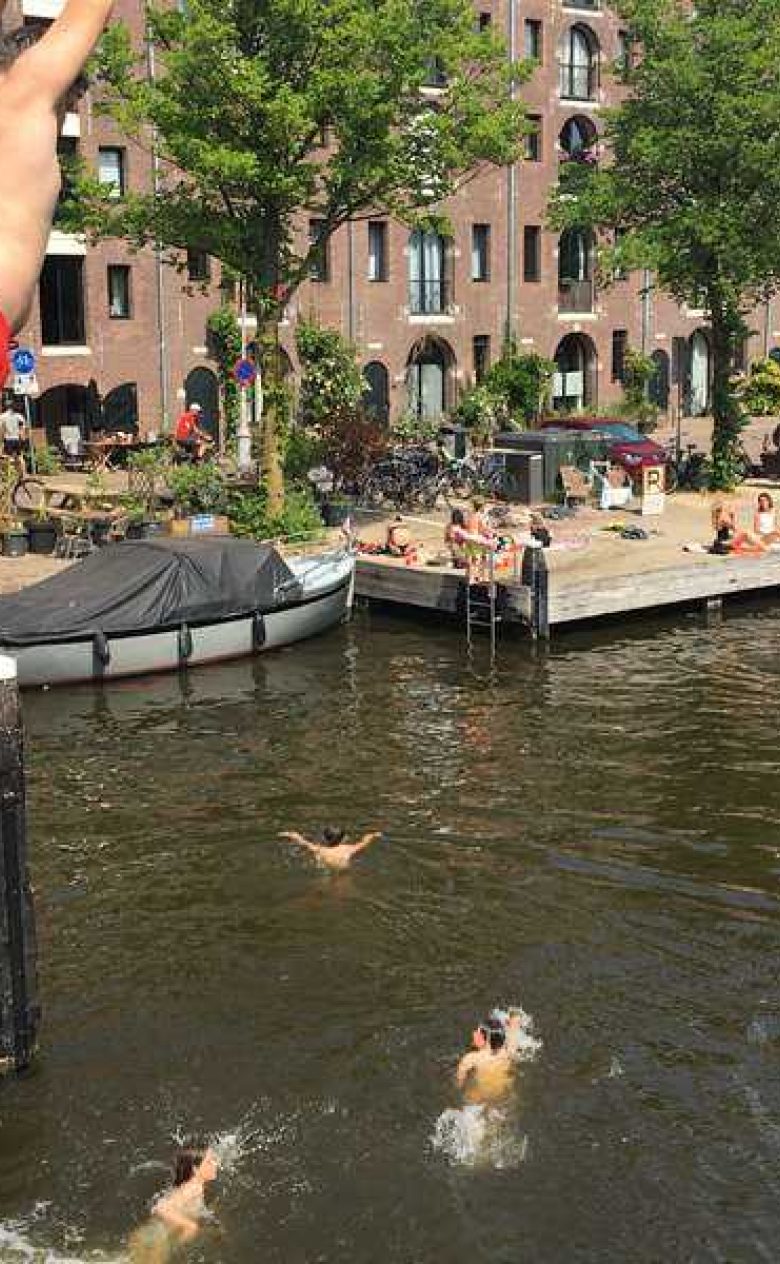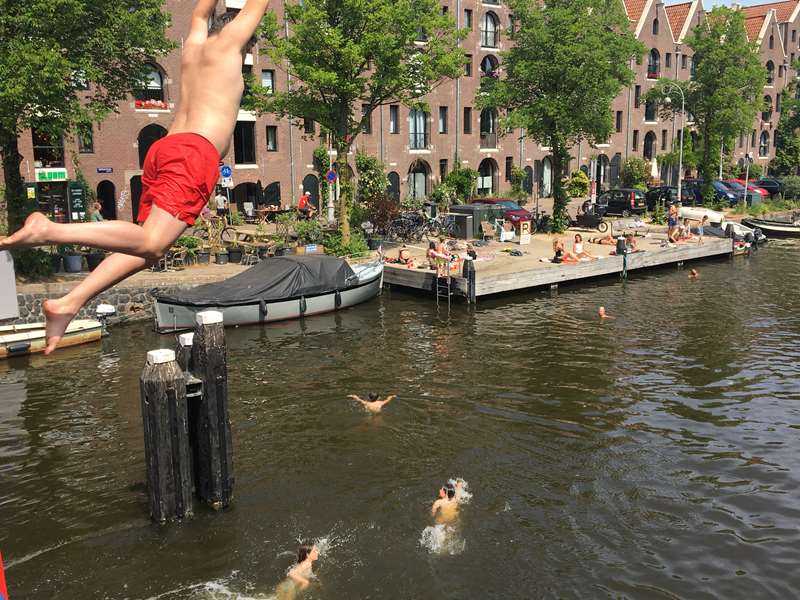Will urban water be ready for multiple uses by 2040?
A new instrument has been developed to provide an answer to this question. On 17 January, Suzanne van der Meulen will receive her doctorate at Wageningen University for her thesis ‘Functional quality of urban surface water’. This thesis describes a new framework for the assessment of the functional quality of urban surface water.

Growing ambitions for the use of urban surface water
Society uses urban water - canals and ponds - for a wide range of purposes. For her doctoral research, Van der Meulen conducted in-depth interviews with water management authorities and spatial planners in Amsterdam and Toronto. She found that the uses to which urban surface water will be put will be even more intensive and wide-ranging by 2040.
For example, the demand for the leisure use of water, including swimming, canoeing and fishing, is on the rise. City authorities also want to expand water transport to relieve road congestion. Construction materials and municipal waste, for instance, are already being transported by ship. The European Commission is also advocating the better use of urban waterways. This fits in well with the trans-European transport network that will be developed between now and 2050. Another function for which demand is rising is thermal energy (aquathermy). This involves using surface water as a source of energy for heating and cooling buildings. The people interviewed by Van der Meulen are also seeing new uses emerging, such as climate regulation and the production of biocomposite from mowed aquatic plants. Meeting this new demand will require the proactive management of water quality and use.
Suzanne van der Meulen, PhD candidate at Wageningen University & Research and adviser urban water management at Deltares says; ‘A striking development is the increasing popularity of bathing in urban surface waters, even though most waters have not been officially designated as bathing water.’
The remaining question is whether this water system is suitable for all these purposes.

Framework for the assessment of the functional quality of urban surface water
The new assessment framework will make it possible to determine in a consistent and transparent way the suitability of urban water for different uses. The framework consists of suitability indices for individual uses. It can also be used for functions that are not, or not entirely, dependent on traditional water quality parameters: aquathermy, transport and leisure activities outside official bathing waters, for example.
More research is needed for the ongoing development of the assessment framework. The generic protocol for the development of suitability indices can be used to develop indices for more uses and for more urban contexts. To support the sustainable and multifunctional use of water, research is recommended into trade-offs between human uses, as well as between human uses and ecological goals.
We asked Pascale Roualt, opponent and urban water management expert at Hamburg Wasser if she could comment on the work of Van der Meulen. Pascale; ‘Suzanne’s PhD points out the need for the proactive and function-oriented planning, design and maintenance of urban surface waters, in addition or parallel to ecological aspects. She puts forward a framework for the assessment of functional quality of urban surface water using suitability indices. This is very valuable for cities in general - so not only for the city of Hamburg where I’m working. Urban surface waters are experiencing a competitive use nowadays. This innovative framework enables multi-stakeholder discussions and decisions based on a neutral quantative evaluation. I can imagine that this methodology is used for the development of bathing sites bringing new perspectives to the table. With a growing access to environmental data I believe that its use will increase.'
